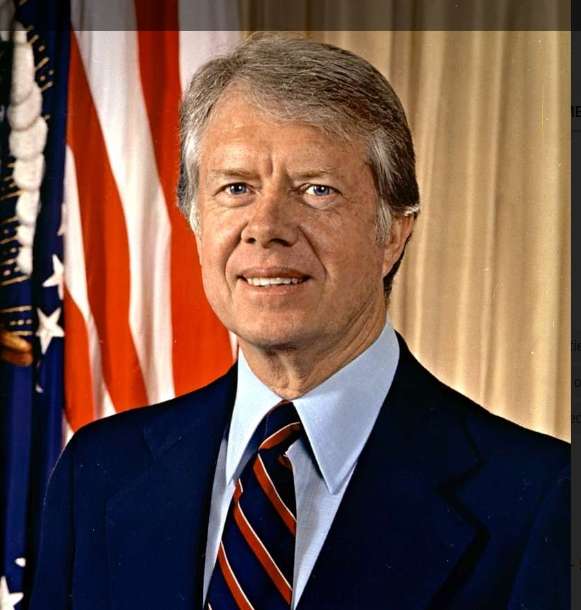Former President Jimmy Carter Passes Away at 100
Jimmy Carter’s life, spanning a remarkable century, stands as a testament to unwavering dedication to public service, personal integrity, and a profound commitment to humanitarianism. From his early days as a naval officer and peanut farmer to his presidency and post-presidential work, Carter’s journey was marked by both triumphs and challenges, leaving an indelible impact on American and global history.
His early life experiences shaped his character and future trajectory. A graduate of the U.S. Naval Academy, Carter’s service as a submariner instilled in him a sense of discipline and commitment that would define his approach to public service. Returning to Plains, Georgia, after his father’s death, he embraced the responsibility of managing the family peanut farm, forging a deep connection to his community and laying the groundwork for his entry into politics.
Carter’s political career began in the Georgia state legislature, culminating in his election as governor in 1971. His tenure as governor was marked by a focus on racial equality and government reform, establishing his reputation as a progressive leader in the American South. This reputation as an outsider, untainted by the political establishment, proved crucial in his successful 1976 presidential bid. In the wake of the Watergate scandal and a period of national disillusionment, Carter’s message of honesty and integrity resonated with the American public.
Carter’s presidency, while rooted in noble ideals, faced considerable economic and foreign policy challenges. High inflation, soaring interest rates, energy crises, and unemployment plagued his administration, casting a shadow over his domestic agenda. The Iran hostage crisis, a 444-day ordeal that gripped the nation, became a defining event of his presidency, ultimately contributing to his defeat in the 1980 election. The failed rescue attempt and the eventual release of the hostages after Ronald Reagan’s inauguration further compounded the political damage. Despite these setbacks, Carter’s unwavering commitment to human rights and peacemaking remained evident throughout his term.
Beyond the political arena, Carter’s life was marked by moments of both personal reflection and unintentional humor. His candid admission of “lustful thoughts” in a 1976 interview with Playboy magazine, while controversial at the time, underscored his commitment to honesty, even at the risk of political fallout. His accidental lip-lock with the Queen Mother during a 1977 visit to the UK, while a breach of royal protocol, became a lighthearted anecdote in his long and storied life. Through it all, his enduring partnership with Rosalynn, spanning an extraordinary 77 years, served as a constant source of strength and support. Their marriage exemplified dedication and mutual respect, providing a foundation for his personal and public endeavors.
Carter’s post-presidency marked a new chapter of service to humanity. Returning initially to Plains to rebuild his family’s peanut-farming business, he subsequently dedicated himself to global humanitarian work, addressing issues of global health, conflict resolution, and the promotion of democracy. His tireless efforts through the Carter Center earned him the Nobel Peace Prize in 2002, a testament to his unwavering commitment to making the world a better place. His hands-on involvement with Habitat for Humanity, building homes for those in need, demonstrated his belief in service beyond rhetoric. Carter’s legacy extends far beyond his time in office, inspiring generations with his tireless pursuit of peace, justice, and human dignity. He set numerous records, including being the longest-living president, winning the Nobel Peace Prize, having the longest presidential marriage, and popularizing the term “born-again Christian.” He remains the only president from the US state of Georgia. His story is a testament to the power of integrity, compassion, and a life dedicated to making a difference in the world.
Share this content:












Post Comment